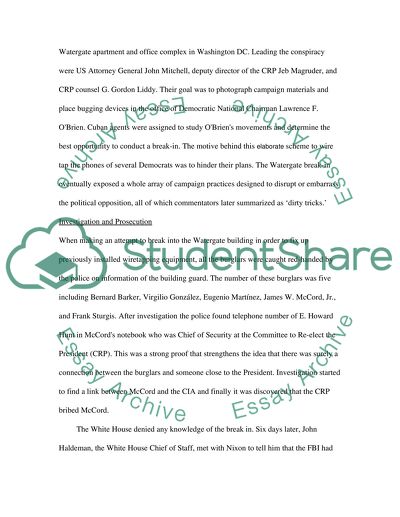Cite this document
(Richard Nixon: Watergate Co-conspiracy Report Example | Topics and Well Written Essays - 2000 words, n.d.)
Richard Nixon: Watergate Co-conspiracy Report Example | Topics and Well Written Essays - 2000 words. https://studentshare.org/history/1523842-richard-nixon
Richard Nixon: Watergate Co-conspiracy Report Example | Topics and Well Written Essays - 2000 words. https://studentshare.org/history/1523842-richard-nixon
(Richard Nixon: Watergate Co-Conspiracy Report Example | Topics and Well Written Essays - 2000 Words)
Richard Nixon: Watergate Co-Conspiracy Report Example | Topics and Well Written Essays - 2000 Words. https://studentshare.org/history/1523842-richard-nixon.
Richard Nixon: Watergate Co-Conspiracy Report Example | Topics and Well Written Essays - 2000 Words. https://studentshare.org/history/1523842-richard-nixon.
“Richard Nixon: Watergate Co-Conspiracy Report Example | Topics and Well Written Essays - 2000 Words”. https://studentshare.org/history/1523842-richard-nixon.


